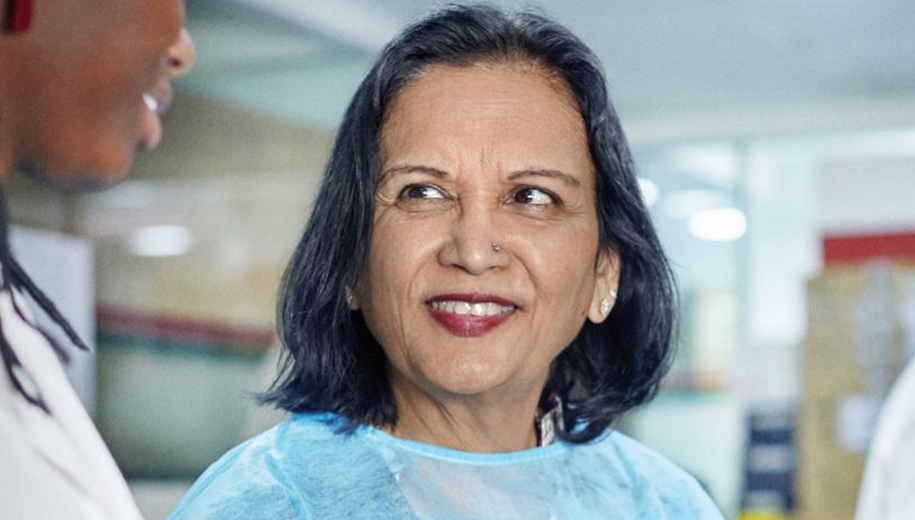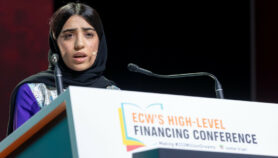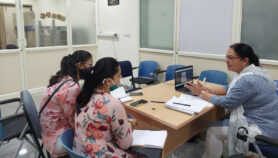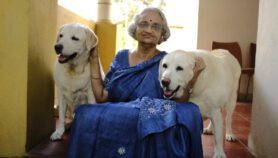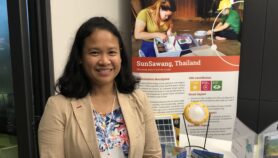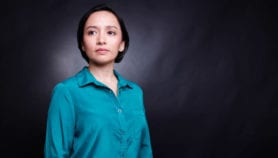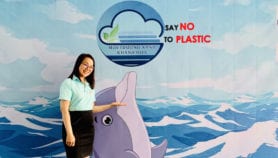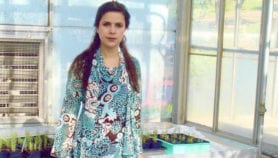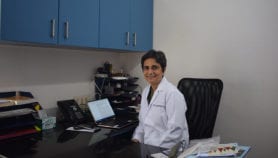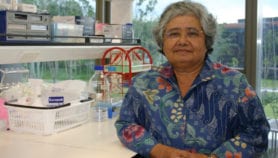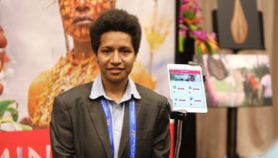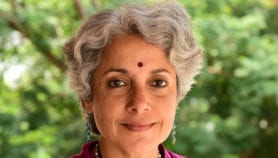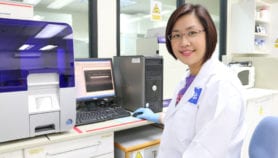By: Fatima Arkin
Send to a friend
The details you provide on this page will not be used to send unsolicited email, and will not be sold to a 3rd party. See privacy policy.
[MANILA] Bangladeshi infectious disease specialist Firdausi Qadri is the 2020 Laureate for Asia and the Pacific of the L’Oréal-UNESCO For Women in Science International Awards for her outstanding work in preventing diseases affecting children in developing countries. As the first South Asian to win the coveted award in a decade, Qadri says that she is conscious of her responsibilities to her region and is motivated to strive harder in her field.
A senior scientist at the International Centre for Diarrhoeal Disease and Research in Bangladesh’s capital city, Dhaka, Qadri has produced groundbreaking work on cholera vaccinations and is currently working on evaluating a typhoid conjugate vaccine from India, and has recently become very involved in COVID-19 related testing and research.
Her studies on cholera and typhoid are now being replicated in Africa, Haiti and other Asian countries. With over 800,000 children around the world dying of diarrhoea each year, caused by cholera, typhoid and other bacterial diseases, Qadri’s work has the potential to save hundreds of thousands of lives.
In this interview with SciDev.Net, Qadri talks about what motivated her to become a scientist, the importance of her research in an age of accelerating climate change, and offers advice on how to be successful to young scientists in the Asia-Pacific region.
“It takes an effort to make yourself heard in the society I live in. It is easy for men to be assertive and make themselves heard. I have made it my habit to also emphasise that as a scientist and as a woman my views are just as important”
Firdausi Qadri, International Centre for Diarrhoeal Disease and Research
Congratulations on being the 2020 Asia-Pacific winner of the L’Oréal-UNESCO For Women in Science International Awards. What does this award mean to you as a Bangladeshi and as a vaccinologist?
The L’Oreal-UNESCO prize has been one of the best recognitions that I have gotten. It made me conscious of my responsibilities to my region and fulfill all the expectations that this prize brings to me as an infectious disease specialist. As a vaccinologist, it gives me great satisfaction to be recognised for my work. Again, it drives me to strive harder to find solutions for prevention of vaccine preventable diseases globally and in our settings.
What motivated you to become a scientist?
From childhood I have been very interested in biological sciences and in understanding the meaning of life. This led me to become interested in studies understanding what causes diseases and how one recovers and becomes well. I felt very sorry to see people become ill, see them suffer and die. It always left me feeling very inadequate and helpless. In Bangladesh there is so much suffering. This is why my direction in life was always swayed towards knowing more about diseases and its prevention than only looking for cures.
Your research and development on cholera and typhoid vaccines are being replicated in Africa, Haiti and other Asian countries. Why is it important to scale up research on bacterial diseases, especially in the context of accelerating climate change and the global refugee crisis?
Because of the problems of environmental change, bacterial as well as other types of pathogen-driven diseases are increasing. In our setting, it is the high density of population living in adverse conditions that is most affected by these diseases. My special interest is also in bringing solutions to people who are in humanitarian crises because of manmade and political adversity. So, looking at ways to help displaced people is something that is very important to me. Based on this I have focused on the over one million people displaced from Myanmar in 2017 to Bangladesh and whose vulnerability to diseases was immense. Getting a cholera vaccine to them can prevent a major epidemic.
Recently you’ve been very involved with COVID-19-related testing and research. Can you discuss the work that you’re doing?
There are many different areas in which I am involved in the field of COVID-19. First, I am deeply involved in supporting Bangladesh to increase testing by RT-PCR [a process known as reverse transcription polymerase chain reaction, which is capable of detecting virus particles that are generally present in respiratory secretions during the beginning of an infection. It is the most common test used to detect the coronavirus] and through the Institute for Developing Science and Health Initiatives, which is one of the first few testing sites for COVID-19 that was set up. I am also very involved in understanding the immunological basis of COVID-19 in the Bangladeshi population and in better understanding the genomics of the virus. We need vaccines for Bangladesh and we are planning at the International Centre for Diarrhoeal Disease Research important efficacy studies going forward. I hope that we have protective vaccines for Bangladesh and globally as soon as possible.
What kind of challenges have you faced as a female scientist and how have you overcome them?It takes an effort to make yourself heard in the society I live in. It is easy for men to be assertive and make themselves heard. I have made it my habit to also emphasise that as a scientist and as a woman my views are just as important. It has worked. I teach my younger researchers and colleagues that they have to persevere too.
What advice do you have for young Asian and Pacific scientists who dream of being as successful as you in the future?
I can only advise them to find a field of work that will be meaningful to their own setting and region. It must be an area that will impact the lives of people around them. I would advise them to develop their careers and work hard to learn new technological approaches. Also, have novel ideas that they can spend their lives on. Most of all I will advise them never to leave but face the problems and difficulties and develop a career in their own settings. However, collaboration will be most important for development, particularly within the country and in South-South and South-North direction.
This piece was produced by SciDev.Net’s Asia & Pacific desk.


